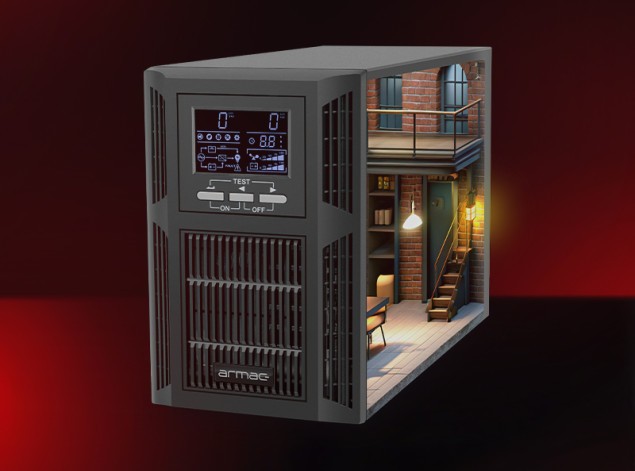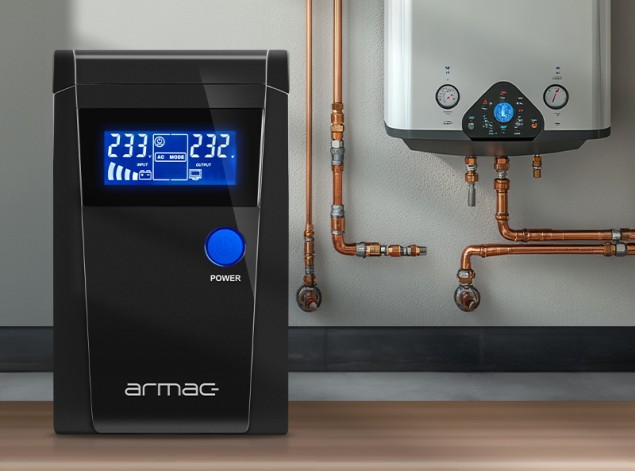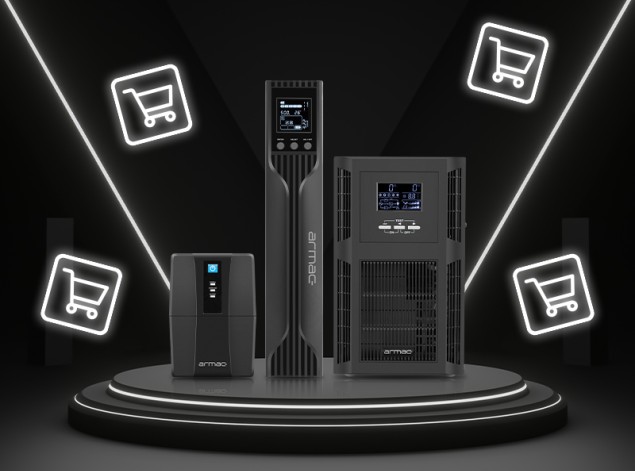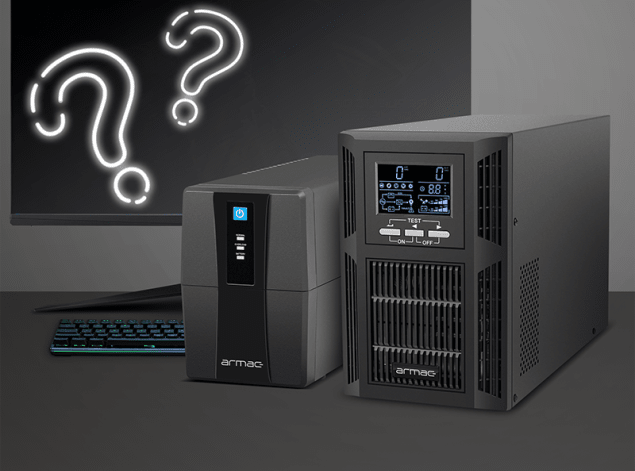You don't have to imagine a violent storm for long – one lightning strike is enough to cause a sudden power surge in the electrical system, which in a fraction of a second can “fry” even a brand new PC, 4K TV or fiber optic router. However, there are many myths surrounding this topic, so today we will separate fact from fiction and advise you when it is worth unplugging your devices and when it is better to trust the professional protection provided by Armac-Energy. We create good energy – and we will show you how to use it to protect your electronics during a storm.
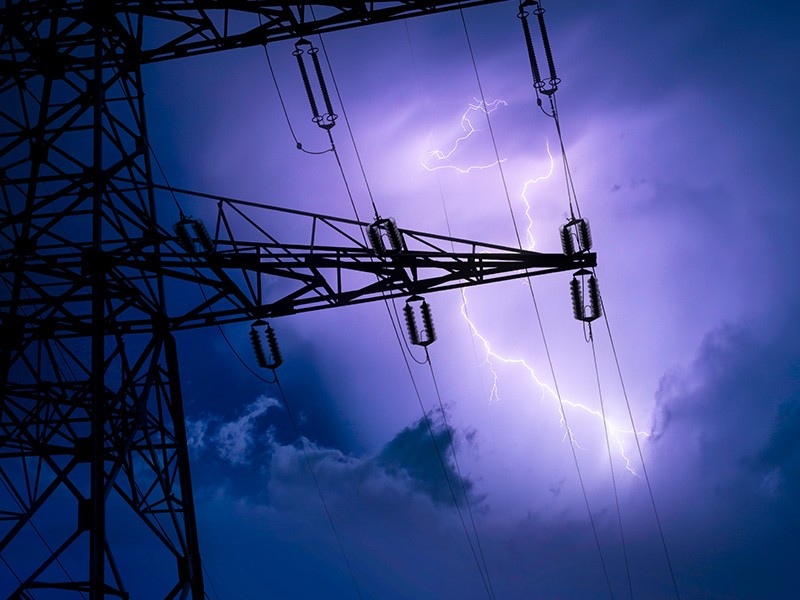
Why are storms and lightning dangerous for computers and other electrical equipment?
From April to September, Mother Nature repeatedly tests the Polish power grid. Every storm is a potential lightning strike, and each strike carries hundreds of millions of volts of energy. Power surges, also known as power spikes, are particularly damaging to electronic equipment such as computers, consoles, speakers and home theater amplifiers, televisions, servers, and even smart appliances. These devices operate on sensitive electronics, whose miniature circuits can burn out from just a few hundred extra volts.
How does lightning damage electrical equipment?
A storm occurs when positive and negative charges accumulate in clouds; at a certain point, the difference in potential is so great that a discharge occurs – lightning. If lightning strikes a power line or transformer station directly, the excess energy “spills” across the network. Although power engineers use lightning protection equipment to protect power lines, an extremely strong lightning strike on a building or pole can cause voltage surges of up to several kilovolts on a home meter. Excess current then flows through the wires and sockets, taking the path of least resistance – usually straight to the delicate power supply sections of motherboards, SSDs, or audio amplifiers, causing irreversible damage to the equipment.
Electrical appliances and electronics particularly susceptible to power surges and overloads
- PCs and laptops (a switched-on computer is an open gateway for power surges).
- Routers, smart TVs, audio/video equipment, and home theater systems.
- Servers, NAS devices, and heating or pump control devices.
- Modern household appliances: refrigerators, induction cookers, washing machines.
- Electronic instruments or stage amplifiers, telemetry equipment equipped with external antennas or satellite antennas.
Each of these is not only valuable, but often connected to the network around the clock, so the risk of damage increases with each subsequent discharge.

Should you disconnect your computer, audio/video equipment, and household appliances during a storm, and if so, when?
The simplest protection is to physically disconnect devices from the power supply. If you have a moment to turn off the system, unplug it and also disconnect the antenna or network cable – this reduces the risk to almost zero. However, disconnecting devices is inconvenient: it causes computers and servers to stop working, stops monitoring recorders and TV reception, and generates additional costs for the company. That is why, instead of disconnecting electronics during a storm, we increasingly prefer to protect them professionally.
How else can you protect your computer during a storm?
There are two main options to choose from:
- A surge protector with varistors and fuses instantly “cuts off” the peak voltage.
- UPS emergency adapters with voltage stabilization maintain power supply by imitating the mains power supply when the power goes out during a storm or the voltage drops suddenly.
The combination of both solutions is a barrier that is difficult to overcome even for powerful lightning.
Surge protector - what is it for, does it protect effectively, and how to choose the right one?
A surge protector works like a silencer: when it detects a sudden surge, a built-in fuse or varistor immediately closes the circuit and directs the excess to the ground. The key parameters are:
- Response time (the shorter, the better – ideally less than 25 ns).
- Maximum load (must be higher than the total power supplied by the strip).
- Number and type of sockets (Polish, French, or IEC: C19/20 and C13/14).
For example, the Armac M6 series, compatible with 19" RACK cabinets, is equipped with fast and effective fuses, a flame-retardant case – ideal for home studios and server cabinets – and allows you to connect devices with a total power of up to 2300 W. Remember: a power strip protects against power surges, but will not keep your equipment running if the power goes out completely.
Using UPS backup power supplies to protect electronic equipment
An uninterruptible power supply (UPS) not only filters power surges, but – thanks to built-in AGM VRLA batteries – keeps your equipment running when the power goes out. In line-interactive mode, the integrated AVR immediately stabilizes minor fluctuations, while online models double convert the energy, providing a perfect sine wave and zero switching time. The Armac range includes the compact Home Line-In 1000 VA for offices and professional online RACK 1-3 kVA models for server rooms. With a UPS, you have time to save your project, close applications and safely discharge the computer adapter's capacitors without panicking. One device – greatly reduced risk of data and hardware damage.p>
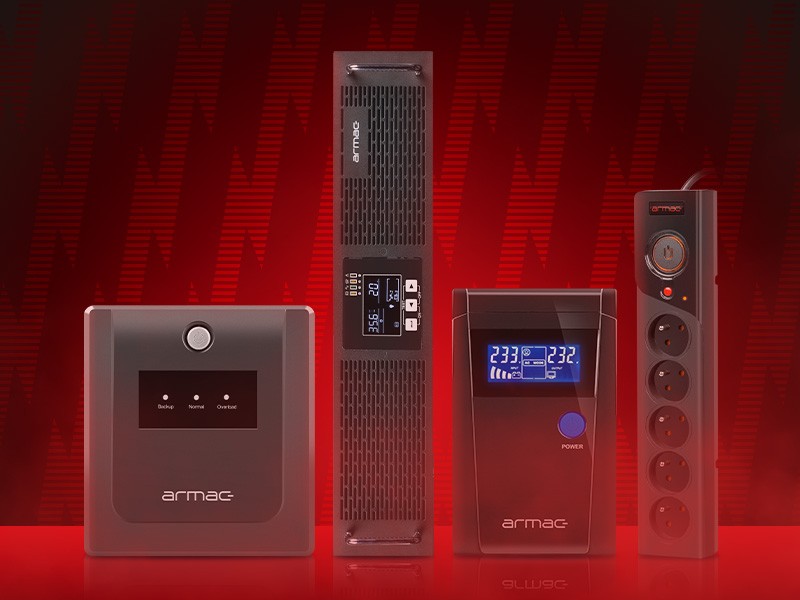
Storm season in Poland – when should you be most careful?
IMGW statistics show that Poland experiences the most lightning strikes between the beginning of April and the end of September. High temperatures overload the electrical grid, as air conditioners and refrigerators run at full power, which contributes to further power surges. This is when it is worth having a power strip with a fast and effective fuse and a UPS adapter that powers critical servers, PCs, and surveillance cameras.
Will the right equipment always protect your equipment from a storm?
Unfortunately, no. It's always a game of probability. Sometimes a powerful discharge will break through all barriers, and sometimes even during a major storm, nothing will happen to devices, even though they were connected to the power supply. However, each additional layer of protection—a surge protector, UPS, good lightning rod—drastically reduces the risk and minimizes the effects of a storm. The cost of protection is microscopic compared to the bill for repairing or replacing a fleet of laptops, a server or a home theater. That's why – whether at home or in an SME – it's always worth protecting your equipment, especially since Armac-Energy does it for you simply, effectively and at an affordable price.p>
FREQUENTLY ASKED QUESTIONS:
Q: Should electronic devices be turned off during a storm?
A: Yes, turning off electronic devices during a storm is a good way to protect them from damage. Lightning can strike a building directly and cause a power surge that will destroy your equipment.
Q: Is it necessary to unplug devices during a storm?
A: Definitely! Unplugging electronics during a storm is the most effective way to protect your equipment from power surges caused by lightning.
Q: Is it safe to leave my computer on during a storm?
A: Unfortunately, leaving your computer on during a storm is a risk that is best avoided. In the event of a storm, it is best to disconnect it from the power supply to avoid damage from power surges.
Q: Should I unplug my TV during a storm?
A: Yes, it is also a good idea to unplug your TV during a storm. This will protect it from power surges that could damage it.
Q: Does a lightning protection system protect my electronic devices?
A: A lightning protection system protects the building from a direct lightning strike, but it does not protect equipment from power surges in the power grid. Therefore, it is a good idea to disconnect your devices from the power supply during a storm.
Q: Is it true that it is better not to use a cell phone during a storm?
A: This is a myth! Cell phones are safe to use during a storm as long as they are not connected to a charger.
Q: Can the power supply be interrupted during a storm?
A: Yes, storms and electrical appliances are often a bad combination. Lightning can damage power lines, leading to power outages.
Q: What are the facts and myths about storms and electrical appliances?
A: Facts: We disconnect appliances from the power supply; a lightning rod does not protect electronic equipment. Myths: Mobile phones are not safe during storms.
Q: Can lightning damage a computer if it is not directly connected to the power supply?
A: If the computer is unplugged, the risk of damage is much lower. However, indirect surges through the internet can still pose a threat, so it is a good idea to use surge protectors





